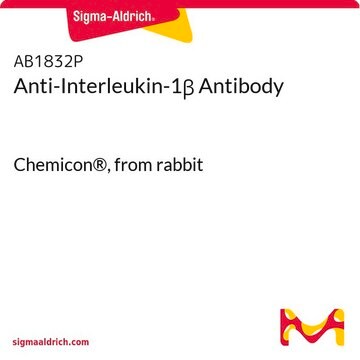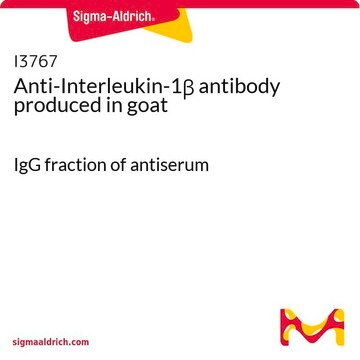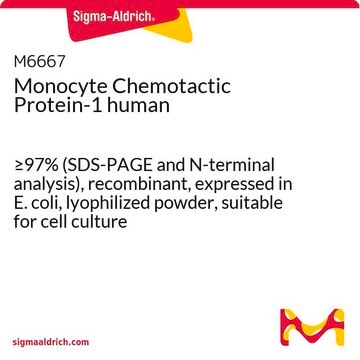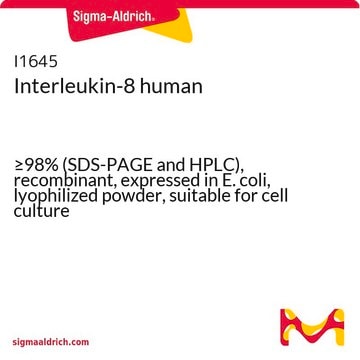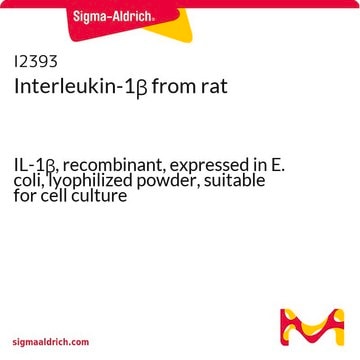I3642
Monoclonal Anti-Interleukin-1β antibody produced in mouse
clone 8516.311, purified immunoglobulin, lyophilized powder
Synonym(s):
Anti-IL-1β
About This Item
Recommended Products
biological source
mouse
Quality Level
conjugate
unconjugated
antibody form
purified immunoglobulin
antibody product type
primary antibodies
clone
8516.311, monoclonal
form
lyophilized powder
species reactivity
human
technique(s)
flow cytometry: suitable
immunohistochemistry: 8-25 μg/mL using human PBMC′s
neutralization: suitable
western blot: 1 μg/mL
isotype
IgG1
UniProt accession no.
storage temp.
−20°C
target post-translational modification
unmodified
Gene Information
human ... IL1B(3553)
Specificity
Immunogen
Application
Physical form
Preparation Note
Disclaimer
Not finding the right product?
Try our Product Selector Tool.
Storage Class Code
13 - Non Combustible Solids
WGK
WGK 2
Flash Point(F)
Not applicable
Flash Point(C)
Not applicable
Certificates of Analysis (COA)
Search for Certificates of Analysis (COA) by entering the products Lot/Batch Number. Lot and Batch Numbers can be found on a product’s label following the words ‘Lot’ or ‘Batch’.
Already Own This Product?
Find documentation for the products that you have recently purchased in the Document Library.
Our team of scientists has experience in all areas of research including Life Science, Material Science, Chemical Synthesis, Chromatography, Analytical and many others.
Contact Technical Service
